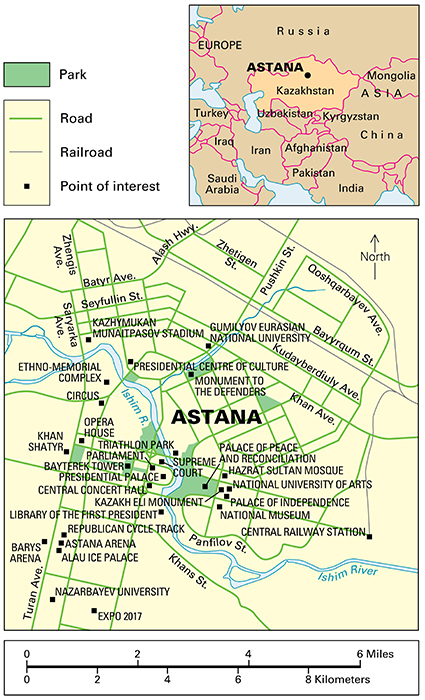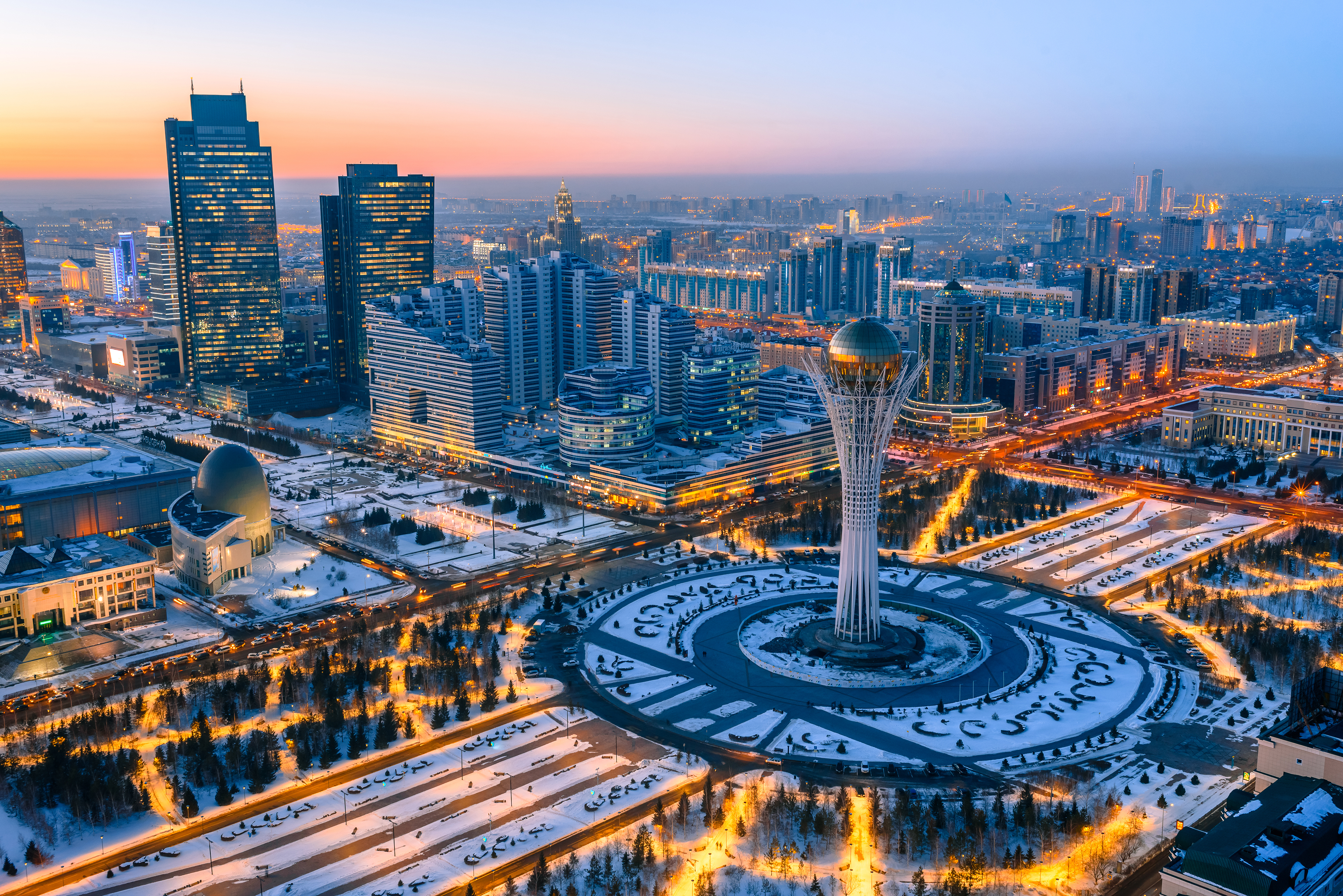Astana (pop. 610,679) is the capital of Kazakhstan. It serves as the railroad hub for a major grain- and livestock-producing region of Kazakhstan. The city manufactures food products, machinery, and other products. It lies along the Ishim River on the plains of north-central Kazakhstan.

The city was established in 1830 as a Russian military outpost. It soon grew into a town called Akmolinsk. In the 1950’s, while Kazakhstan was a republic of the Soviet Union, the Soviet government chose the region around Akmolinsk as the site of the Virgin Lands project, an agricultural development project. In 1961, Akmolinsk was renamed Tselinograd (Virgin Lands City).

The Soviet Union broke up in 1991, and Kazakhstan became independent. The city adopted its Kazakh name, Aqmola (also spelled Akmola). In 1997, the country’s capital was moved from Almaty to Aqmola. In 1998, Aqmola was renamed Astana, the Kazakh word for capital. In 2019, Kazakhstan’s parliament changed the city’s name to Nur-Sultan to honor Nursultan Nazarbayev, the nation’s first president. Nazarbayev had been president from 1991 until he resigned in March 2019.
In 2022, an antigovernment protest movement triggered by an increase in fuel prices led to a decline in Nazarbayev’s popularity. In September, Kazakhstan’s parliament changed Nur-Sultan’s name back to Astana.
